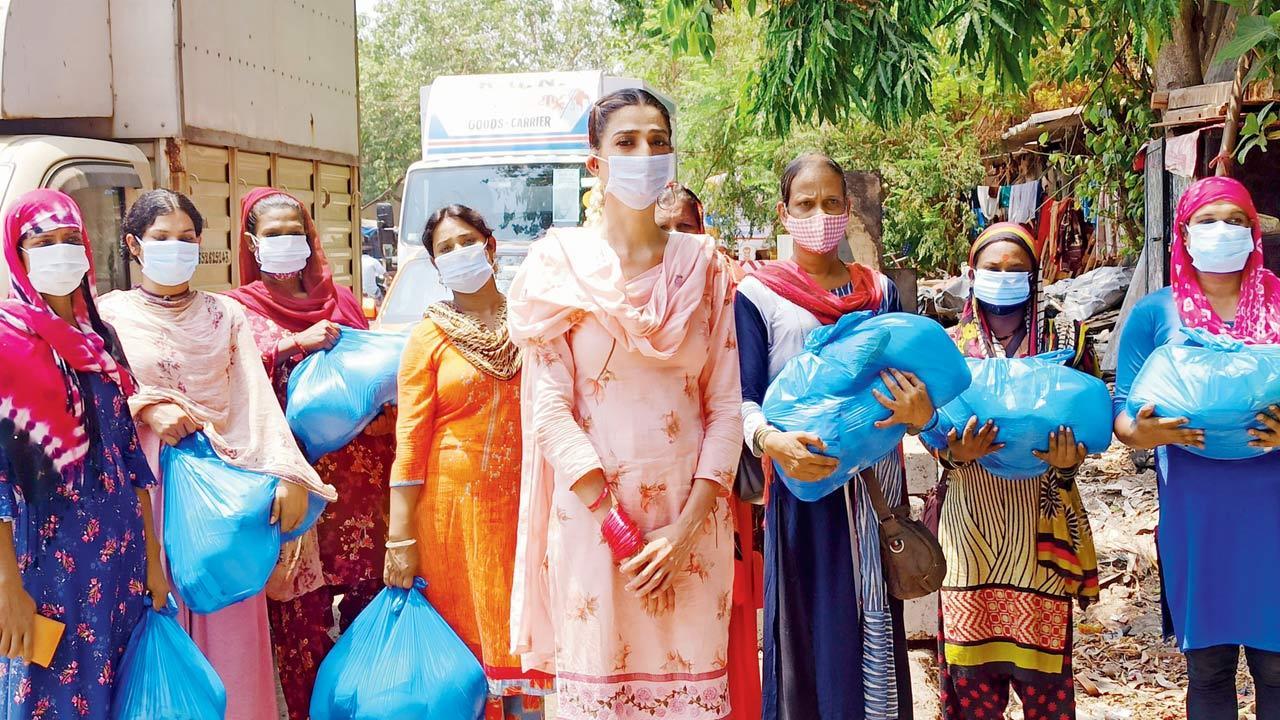This transgender community, whose request for a shelter has been ignored for 10 years, has been helping not just its own but anyone in need of help during the pandemic.

Kinnar Maa Trust members distribute food packets and masks to people who live on the pavements and in slum areas
A Group of transgender people, who have still not found their rightful place in the society and often feel deprived of basic human rights, has become an example of humanity during the pandemic-induced crisis.
ADVERTISEMENT
Kinnar Maa Trust, with which lakhs of transgender people are associated, delivers hundreds of packets of food grains, hand sanitiser and masks to not just the members of the community but to anyone who needs help.
The organisation started distributing food packets when the COVID-19 outbreak paralysed the city in March last year. Overall, the trust has helped more than 80,000 people in the city and the surrounding regions. They have also distributed hand sanitiser and masks at police stations and petrol pumps.
Kinnar Maa Trust President Salma Khan told mid-day, “We have distributed food packets not only in Mumbai, but in Thane, Vasai, Nalasopara, Palghar and Pune too. We first start with kinnars [transgender people], and then help those living on pavements and in the slums.”
“The transgender people have not yet found their rightful place in the society. Some people look at us with hateful eyes, and we are deprived of basic human rights. But today, we do not care about all that. There is a pandemic in the country, and we only need to practice the religion of humanity. Today, people need help and we are doing all that’s possible for us.”
“For the past 10 years, we have been demanding a shelter home for transgender people but no one listened to us. If we had a shelter home today, we could have offered it for opening a COVID Care Centre.” Anusha, who lives in a slum in Sewri, received a packet of food from the trust on Wednesday. She told mid-day, “Today, for the third time, the Kinnar Maa Trust has helped me. I am grateful to them.”
700
No. of people they give food packets to every day
 Subscribe today by clicking the link and stay updated with the latest news!" Click here!
Subscribe today by clicking the link and stay updated with the latest news!" Click here!






